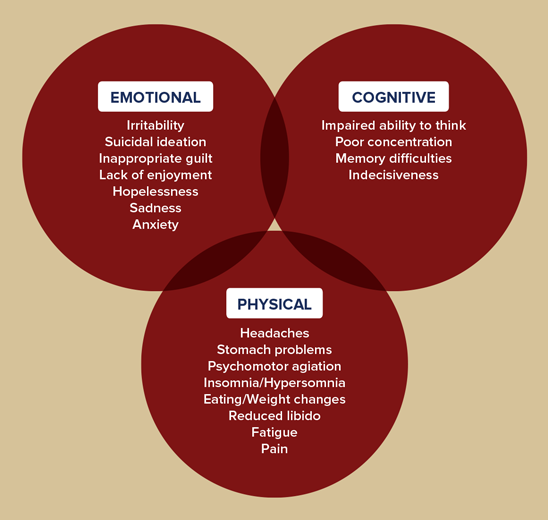
An overview of depression
Depression is a clinically heterogeneous condition, with a widely underestimated variety of symptoms spanning emotional, physical and cognitive domains.1,2 While patients must present with either depressed mood or anhedonia for a diagnosis of depression to be provided, a selection of the symptoms below can also contribute to their depressed state:1

Cognitive symptoms in particular are a poorly understood aspect of depression symptomatology in clinical practice.2 In fact, even DSM-5 does not cover the full range of cognitive symptoms which present in patients with depression.1
Additional cognitive deficits seen in depression include:3-5
Cognitive symptoms are a significant component of depression in many patients, and often persist beyond the cessation of emotional manifestations like sadness, anxiety and anhedonia1: